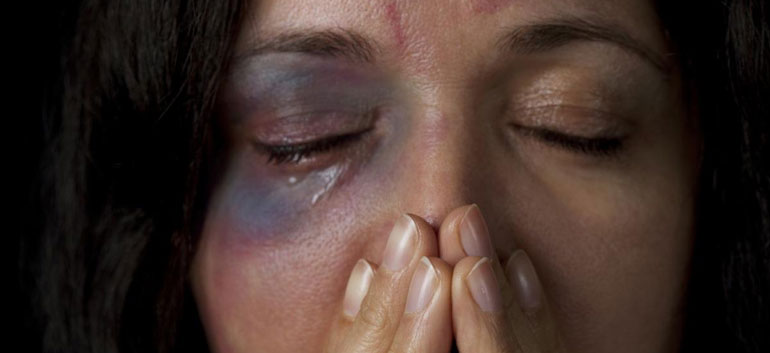An international forum on sexual violence held in the Colombian capital of Bogota revealed that impunity for sexual violence in the country has reached 98%.
Organized by the Norwegian Refugee Council and El Tiempo newspaper, the forum revealed that although more than 90,000 cases of sexual against women have been reported during 50-year armed conflict, less than 10% of the perpetrators of the crimes have been sentenced.
Held in late April, the “Dialogues in White-Purple” (Dialogos en Blanco –Purpura) forum on sexual violence heard testimonies of victims, along with discussions by panelists from Yale University, the International Center for Transitional Justice, and the Organization of American States (OAS) among others. Ambassadors from Canada and Norway were also in attendance during the forum.
A Lack of Attention to Women in Conflict
A number of panelists voiced concern on issues of continuing violence towards women from armed groups taking part of the armed conflict, including paramilitary groups.
The director of the Colombian human and woman rights advocacy group Human Corporation of Colombia (HCC), Adriana Benjumena, noted the lack of attention to women in conflict, El Tiempo Reported.
Maria Emma Wills, coordinator of the Gender and Memory project of the Historical Memory project — a government-financed research group dealing specifically with the armed conflict — said that the research and field work has shown that “paramilitaries tend to commit mass rapes, with ferocious cruelty,” and added that an important step is to investigate the training of men in the conflict.
According to El Tiempo, the duty of the justice system and the process of recovery for victims of sexual violence was also discussed.
Director of the National Victims Unit Paula Gaviria said “the challenge is great but the commitment is present.”
Christian Visnes, country director of the Norwegian Refugee Council, stated that “it is a huge challenge, because sexual violence against girls and women is happening in Colombia … and we keep seeing no protection conditions for women. We should improve the ways these cases are investigated.”
UN Report on Sexual Violence
A recent report by the UN on conflict-related sexual violence highlighted the crimes of sexual violence committed in conflict zones along with recommendations to national governments on how to reduce impunity.
Regarding Colombia, the report states that “for the period 2012-2013, the General Attorney’s Office reported on the investigation of 86 cases of sexual violence, involving 154 victims,” and noted that in these cases women and girls of Afro-Colombian descent were disproportionately affected.
The report highlighted the use of sexual violence as a tool with which to force the displacement of civilians so as to gain access to natural resources, and as a strategy to “assert territorial control, to intimidate women leaders and human rights defenders and to intimidate the civilian population as a method of social control.”
These points are of particular concern in a resource-rich country such as Colombia as mass internal displacement during the conflict has allowed criminal groups access to mines and areas of productive land.
History’s Oldest and Least Condemned Crime
The staggering impunity rate of 98% outlined in the forum is a result of a number of different factors.
Amrita Kapur of the Gender Justice Program for the International Center for Transitional Justice told Colombia Reports that it is often due to the fact that survivors who report incidents of sexual violence to the authorities and relevant authorities can then receive threats against them and their families.
According to Kapur, another significant factor is the underreporting of the crime based on “women’s fear of stigmatization” as well as the “negative attitudes [and] behavior of the authorities they will report to, particularly by males who have not been trained in how to deal with vulnerable victims.”
She added that impunity lies with the fact that there is “confusion about making a declaration for the purposes of reparation, and making a denunciation to initiate a prosecution. Often a woman will do the former, not realizing that it does not initiate a prosecution.”
Some survivors report having been displaced and raped repeatedly after having reported crimes committed against them.
There can also be issues during investigations whereby officials handling a case, “are unlikely to obtain all the details that would substantiate the relevant sexual violence charges.”
MORE: Colombia’s displaced women poorly protected: HRW
In a press conference in April, the UN Special Representative on Sexual Violence in Conflict Zainab Bangura declared that “perpetrators should never walk free because victims are too afraid to testify, or they are threatened with reprisal and violence,” and conclude by labelling sexual violence as “history’s oldest and least condemned crime.”
The recent UN report urged the Colombian authorities “to ensure that legislative and policy developments, including the Colombian legal framework for peace, contribute to the fulfilment of survivors’ rights to truth, justice and reparation for the full range of violations associated with conflict-related sexual violence.”
“No” to violence against women
Colombia has recently launched an initiative to more involve men in the process of preventing violence against women. The campaign calls for men to say “no” to violence against women, and that “Now’s not the time to stay silent.”
MORE: Colombia soccer stars join campaign to end violence against women
The campaign kicked off by focusing on the high profile football stars of the Colombian national football team.
Sources
- Statement from Amrita Kapur, Senior Associate Gender Justice Program, International Center for Transitional Justice (Colombia Reports)
- Conflict-Related Sexual Violence (Report of the General Secretary of the UN)
- UN urges greater action to combat sexual violence in 21 conflict countries (UN News Center)
- Conflict-Related Sexual Violence Destructive as ‘Any Bomb or Bullet’ (Secretary-General Tells Security Council Open Debate)
- Violencia sexual en el conflicto, un delito que sigue invisible (El Tiempo)


